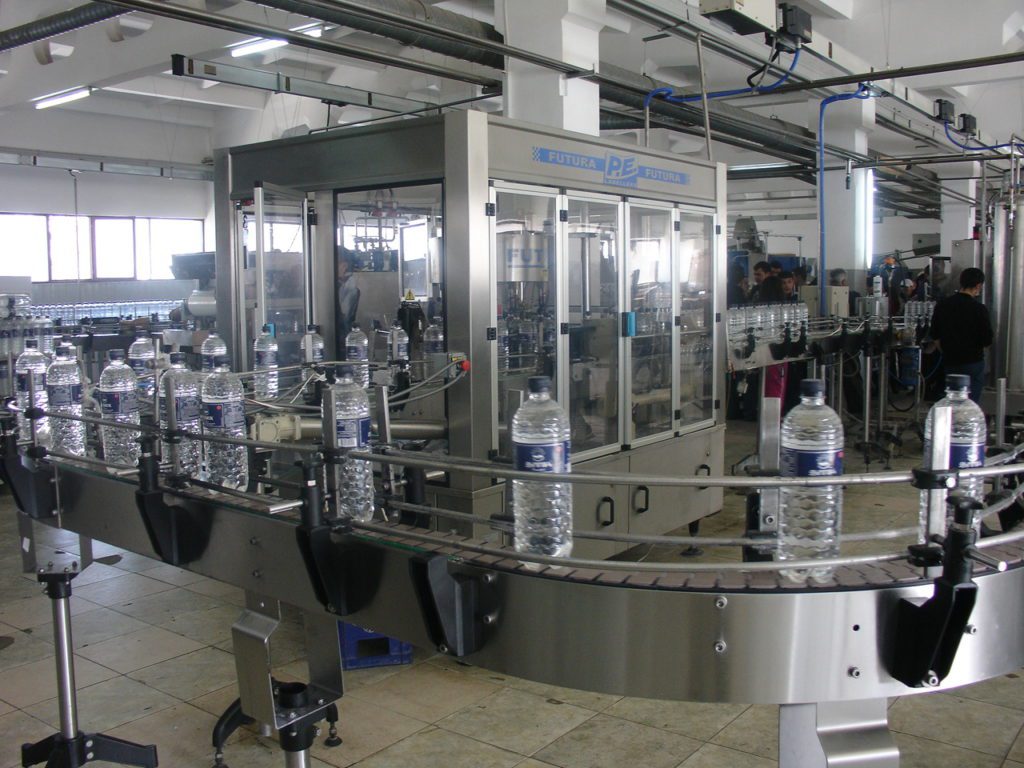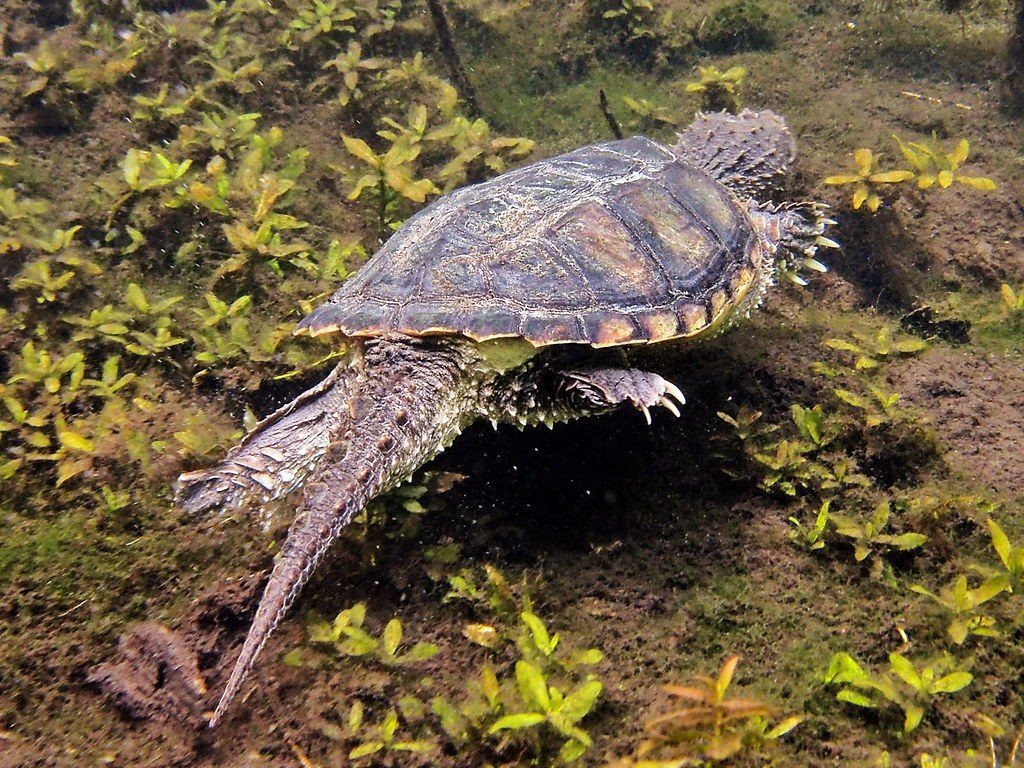Nestlé Plans to Deplete Florida’s Aquifers.
Ginnie Springs, located in northwest Florida, is a hidden oasis—its crystal blue waters, canopied by hardwoods and cypresses, serving as an idyllic getaway for tourists and locals alike. A bird’s-eye view paints a picturesque scene: colorful inner tubes coasting along lazy currents, turtles loafing on riverbanks. Soon, however, this treasured nature preserve will face threats of critically low water levels and decreased spring flow—if the food and beverage giant Nestlé has its way.
Seven Springs Water Co., a water processor that supplies one of Nestlé’s bottling operations in Florida, is set to renew an expired permit that would allow Nestlé to extract more than 1.1 million gallons of water a day from Ginnie Springs. If the Suwannee River Water Management District grants the proposal, the results are a zero-sum game: As groundwater extraction almost triples—from its current 270,000 gallons per day—the aquifer that feeds Ginnie Springs will not be able to replenish, creating an inhospitable environment for native plants and wildlife.
For all its purloining of spring water, one would assume Nestlé pays hefty fees for this precious commodity. It doesn’t. At least not in the state of Florida. In fact, the company can extract water freely at no cost. In 1972 the Florida Legislature passed the Florida Water Resources Act, which maintains that water in springs, rivers and lakes is the property of the state, not of the land owners who live near them. The act created designated water districts, headed by water resource managers, to ensure that development and growing population demands didn’t deplete aquifers across the state. But it never set a price on water—thus allowing major bottling corporations, like Nestlé, to appropriate millions of gallons of water a day from Florida’s springs. Such companies pay for the permits and infrastructure needed to pump water into buildings. But the water itself is free.

Over the past month, the Seven Springs Water Co. permit renewal has garnered widespread attention, both in the media and with conservationists. Opponents of the permit contend that Ginnie Springs—already labeled as “in recovery,” due to decreased water levels from years of overpumping—cannot withstand the kind of extreme groundwater extraction that Nestlé plans to employ. The Santa Fe River, from which Ginnie Springs flows, is also at risk, losing water at an alarming rate while water managers continue issuing permits that prevent the river’s aquifers from recharging. “Essentially, taxpayers are funding replenishment of the aquifer and then allowing Nestlé to take it out and sell it back to us,” wrote Merrillee Malwitz-Jipson and Jim Tatum for the Gainesville Sun.
In response to protests, Nestlé maintains that 1.1 million gallons of water is a proverbial drop in the bucket relative to the “1.3 billion gallons that public utilities, agriculture and industry are permitted to take each day,” reports the Orlando Sentinel. The company says the area’s USGS monitoring systems show that the amount of water extracted under the permit’s terms would account for less than .05 percent of total daily volume there. “Springwater is a rapidly renewable resource when managed correctly,” Nestlé said in a written statement on its website. Spokesperson Adam Gaber recently told The Guardian that instead of taking water from a publicly owned source, Nestlé buys it “from a private company which holds the valid water use permit.” He insists that Nestlé stays within the water limits of the permit, adding that “it would make no sense to invest millions of dollars into local operations just to deplete the natural resources on which our business relies.”
For many campaigners against Nestlé’s plan, this argument, well, doesn’t hold water. The first environmental concern is what Malwitz-Jipson calls “habitat degradation,” caused mostly by decreased water flows. “Few places on Earth have as many turtle species living together and about a quarter of all North American freshwater turtle species inhabit this small river system,” she recently explained to The Guardian. Also at stake are impaired water levels, perhaps the greatest contributor to sluggish river flows. In the past 20 years, the Santa Fe River aquifer has dropped approximately three feet, causing spring flows to plummet 48 percent.
Meanwhile, as noted by a Florida Springs Institute report, released in August, groundwater use has increased 400 percent. To restore average spring flows to 95 percent of their historic levels, the report notes, groundwater extraction needs to decrease by at least 50 percent. This won’t be easy for Nestlé, given that it’s the only water bottling company in Florida that extracts water directly from the source, as opposed to purchasing it from municipal water systems. Springwater, apparently, isn’t as plentiful, or as resilient, as Nestlé claims.

Despite the grim statistics, there are still proactive measures residents and lawmakers can take to prevent, or at least amend, the harmful water use permit that’s afoot. First, city officials and politicians must recognize the environmental hazards of excessive groundwater extraction and implement regulations to mitigate its impact on our rivers and springs. This can start by requiring corporations to pay a small sales tax for bottled water. In 2009, former Gov. Charlie Crist proposed a 6-cent severance tax on each gallon of water that bottlers take from the ground. But the idea received short shrift, and went nowhere. Second, water districts can deny permits requesting groundwater extraction of imperiled springs—especially ones vulnerable to low water levels and flows.
But officials aren’t the only ones who can effect change. Impassioned residents have already mounted a campaign against Nestlé. In her petition to dissuade the Suwannee River Water Management District from renewing Nestlé’s permit, Julienne Wallace wrote, “Ginnie Springs is one of Florida’s treasures. …Nestle is known for destroying places like Ginnie Springs and its breaking our hearts!” As of this writing, the petition is just over 7,000 signatures from reaching its goal. The nonprofit Our Santa Fe River has also created an online forum for protesters. The site provides links to SRWMD’s website permit portal, with directions for how to find the permit’s stipulations. This gives people a better understanding of how such permits work, so they are more informed when leaving comments.
Like many nature preserves currently under siege by mass consumerism, Florida springs are not immune to the irreparable harm of human activities. Taking a stand against corporations that plunder the environment is one way to make a difference; holding water resource managers accountable is another. Our springs remain not just a habitat for wildlife, but a vital part of Florida’s natural beauty, untouched by urban development. So long as bottling companies continue exploiting their resources, it’s up to us to protect them.
Resources:
To sign the “We say NO to Nestle getting water from Ginnie Springs” petition, visit https://www.change.org/p/the-suwannee-river-water-management-district-we-say-no-to-nestle-getting-water-from-ginnie-springs.
To leave a comment on Our Santa Fe River’s site, visit https://oursantaferiver.org/how-to-comment-against-nestle/.
One way to push back against bottling corporations like Nestlé is to avoid buying the bottled water from which it derives its profits. For tips on how to switch from plastic bottles to filtered water, read this article from Penny Hoarder: https://www.thepennyhoarder.com/save-money/alternatives-to-bottled-water/.
For more information on the hidden dangers of plastic water bottles, see our blog at https://ideasforus.org/bottled-water-friend-or-foe/.
What happens to the millions of tons of plastic that enters the world’s oceans each year? Read this to find out: https://www.newyorker.com/news/news-desk/where-does-all-the-plastic-go
Sources:
http://www.floridasprings.org/visit/map/ginniesprings/
https://www.gainesville.com/news/20190801/permit-sought-for-bottled-water-from-ginnie-springs
https://www.ocala.com/opinion/20190814/bob-knight-not-one-drop-more
https://floridadep.gov/water-policy/water-policy/content/water-supply
https://www.theguardian.com/business/2019/aug/26/nestle-suwannee-river-ginnie-springs-plan-permit








